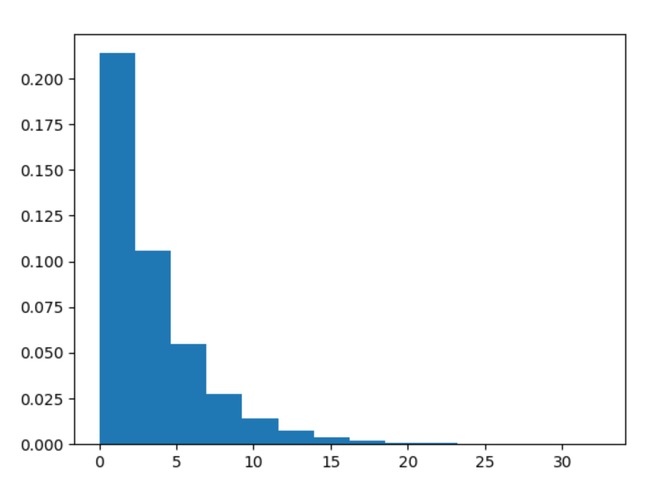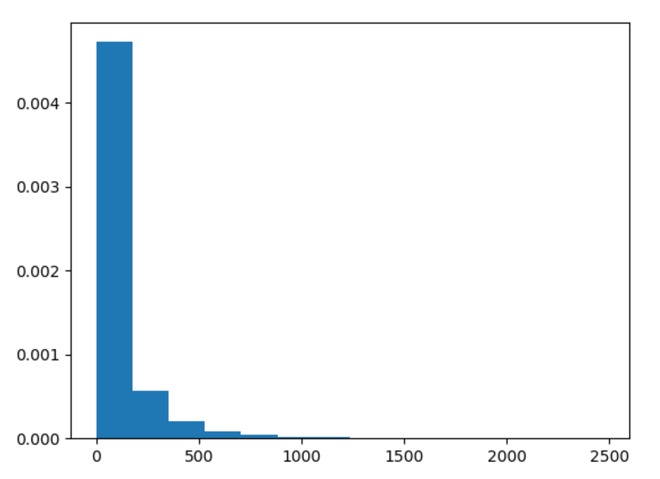借助于numpy.random.exponential()方法,我们可以从 index 分布中获取随机样本,并使用此方法返回随机样本的numpy数组。

index 分布
用法:numpy.random.exponential(scale=1.0, size=None)
返回:返回numpy数组的随机样本。
范例1:
在此示例中,我们可以看到,通过使用numpy.random.exponential()方法,我们能够获取 index 分布的随机样本并返回numpy数组的样本。
Python3
# import exponential
import numpy as np
import matplotlib.pyplot as plt
# Using exponential() method
gfg = np.random.exponential(3.45, 10000)
count, bins, ignored = plt.hist(gfg, 14, density = True)
plt.show()输出:
范例2:
Python3
# import exponential
import numpy as np
import matplotlib.pyplot as plt
# Using exponential() method
gfg = np.random.exponential(101.123, 10000)
gfg1 = np.random.exponential(gfg, 10000)
count, bins, ignored = plt.hist(gfg1, 14, density = True)
plt.show()输出:
相关用法
- Python gcd()用法及代码示例
- Python max() and min()用法及代码示例
- Python set add()用法及代码示例
- Python bin()用法及代码示例
- Python zip()用法及代码示例
注:本文由纯净天空筛选整理自Jitender_1998大神的英文原创作品 numpy.random.exponential() in Python。非经特殊声明,原始代码版权归原作者所有,本译文未经允许或授权,请勿转载或复制。


